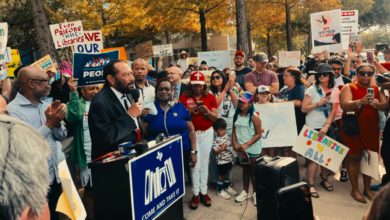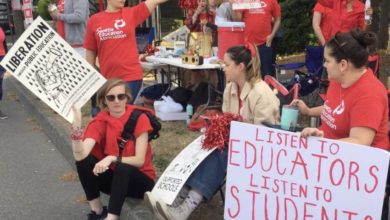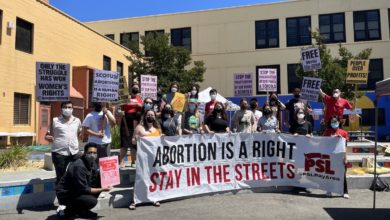In late March, Congress passed the CARES (Coronavirus Aid, Relief, and Economic Security) Act meant to stimulate the economy in the wake of the COVID-19 pandemic. The legislation also included a critical $30.7 billion for educational funding in order to stabilize public school finances. Public school districts in the United States, which are funded largely through property-tax revenues, are likely to encounter significant budget shortfalls as a consequence of the pandemic and mass unemployment.
The CARES Act offered necessary aid to public schools already facing dire financial straits. However, on April 30th, Secretary of Education Betsy DeVos released guidance directing states to share the emergency funds with tuition-based private schools. DeVos’s statement, which flouts Congressional intention to support low-income school districts, is only the Secretary’s latest action in a long campaign against public education.
A vendetta against public schools
DeVos’s efforts to undermine public schools began well before she took office. As chairperson for the American Federation for Children (a right-wing advocacy group), she worked to promote school voucher programs. Indeed, DeVos herself has spent more than $10 million of her own money to lobby for so-called “school choice” programs.
As Secretary of Education, DeVos introduced legislation in 2019 called the Education Freedom Scholarships and Opportunity Act. Co-Sponsored by right-wing Senator Ted Cruz, the bill sought to invest over $50 billion in school voucher programs. At the same time, DeVos also announced support for President Donald Trump’s plan to cut federal education spending by $8.5 billion dollars. DeVos continues to make voucher programs a priority, despite their wide unpopularity.
Such programs divert much-needed funding away from public schools by earmarking school district finances for families looking to send their children to privately-controlled schools. While “school-choice” advocates often allege that vouchers will enable families to choose the best schools for their children, the reality rarely matches up. Vouchers almost never cover the cost of private schooling, but they do drain resources from public schools.
DeVos has never kept her vendetta against public schools a secret, though her latest moves to divert CARES act money to private schools represent a despicable and transparent political maneuver to further privatize education. The idea that a health crisis is the appropriate time to funnel money to private schools is an insult to the needs of families.
DeVos remains indifferent to the needs of working class families
Public schools, for the vast majority of working class families, are a primary source of nutrition, mental health counseling, and special education services–let alone a general education. In response to the pandemic, educational workers have continued to provide meals to families in need. In contrast, private institutions are under no obligation to provide meals when school is not in session, regardless of how many students within a school community are classified as low-income.
Beyond the issued guidance regarding the diversion of funding to private schools, DeVos has also announced a “microgrant” program that encourages families to apply for financial aid in order to pay for private school tuition or distance-learning resources. While the details of this program are still vague, the intent is clear: the federal government will dangle financial aid in front of working-class families and ask these families to compete for assistance.
If DeVos’s contemptible guidance is put into action, working class families will certainly feel the impact of money being siphoned away from their public schools. Already, schools are contending with economic disparities that threaten the goal of accessible education for all. Permanent school closures, primarily in working class and oppressed neighborhoods, continue to fragment communities and create overcrowded classrooms.
In California, for instance, 16 schools are slated to close or merge with other institutions at the end of the school year; the majority of these school closures are in densely-populated, predominantly working-class areas. Public school closures mean that classrooms in remaining schools become overcrowded. In the wake of the COVID-19 pandemic, crowding in the classroom will have serious ramifications.
Secretary DeVos, and the Trump administration as a whole, has demonstrated reprehensible indifference to the plight of working-class students in the United States. Public schools must be fully funded in order to meet the needs of all families, especially throughout the COVID-19 health crisis!






